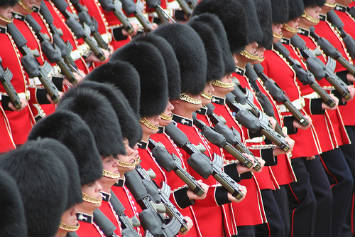
Since October, the British military has reduced its presence in Iraq by 1,000 troops (a fifth its deployed force) and has withdrawn from forward positions in the southern city of Basra to a heavily fortified base at the city’s airport. Nothing says security like camping out next to the airplanes that can whisk you home when things go bad. And after officially transferring security responsibilities to the Iraqi army in December, nearly everyone believed that a complete withdrawal of British troops from Iraq was imminent. Indeed, many observers, both in and out of government, have been eying the British departure from Basra as a predictor of what the Americans should expect when the day finally comes for them to leave Baghdad—namely the emboldening of organized crime syndicates that have fed on the power vacuum left behind by withdrawing forces and the Iraqi army’s feeble attempts to insert itself as a substitute authority.
The word today is that the British have decided to postpone a larger withdrawal from Iraq. The move stems from concern over last week’s bungled attempt by the Iraqi army to dismantle the various criminal gangs and ethnic militias, including Muqtada al-Sadr’s Mahdi Army, that have taken root both in Baghdad and Basra. The Iraqis battled to a draw (to be generous) before having to call on U.S. and British forces for support. The Brits now appear to see a danger that Basra could fall irretrievably into enemy hands should they depart too hastily.
According to UK Defence Secretary Des Brown, as quoted by the BBC:
Before the events of the last week, the emerging military advice, based on our assessment of current conditions then, was that further reductions might not be possible at the rate envisaged in the October announcement – although it remains our clear direction of travel and our plan.
“In the light of the last week’s events, however, it is prudent that we pause any further reductions while the current situation is unfolding.
“It is absolutely right that military commanders review plans when conditions on the ground change.
Photo used under a Creative Commons license from Jon.















